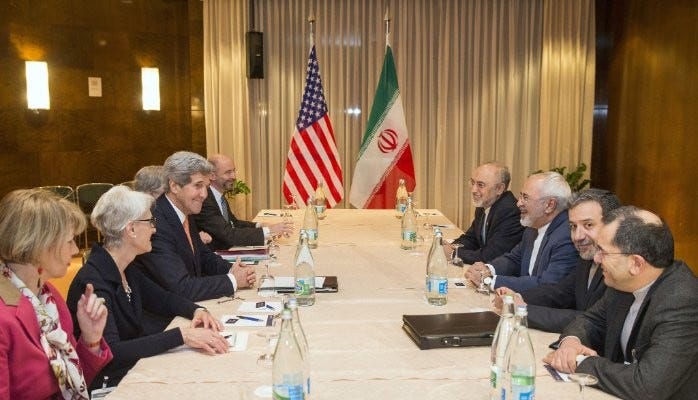5 Ways The Iranian Nuclear Deal May Affect You
The Bastille Day announcement of a nuclear deal with Iran generated a wide range of reactions. President Obama praised the deal, noting it “had stopped the spread of nuclear weapons in the region.” Presidential hopeful Jeb Bush called it “dangerous, deeply flawed, and short-sighted,” while Russian President Vladimir Putin noted “the world today breathed a sigh of relief.” Israeli Prime Minister Benjamin Netanyahu called the deal a “historic mistake” that would enable Iran to become a “terrorist nuclear superpower,” and crowds cheered in Tehran.
While the nuances and details surely matter, the spirit of the deal is straightforward: Iran stops developing nuclear weapons and the rest of the world removes the sanctions. But it is by no means a done deal. Before the sanctions are addressed, both the United States and Iran need domestic approvals of the deal and the International Atomic Energy Agency has to certify that Iran has done what it promised.
Let’s not forget that US presidential cycle is likely to incite an intense debate on the merits of the deal, as noted by Tuesday’s commentary from the candidates.
If Iran is sanction-free (an admittedly big “if”), what does it mean for us as individuals? I’ve been thinking about this since the announcement and believe there are five key impacts worth highlighting:
First, and somewhat obvious, is that cash-strapped Iran will pump oil like it’s going out of style (which, in fact, it may be!). This means more supply and in the short run, downward price pressure on transportation fuels. Cheaper prices at the pump and possibly less-expensive airline tickets? This could mean fatter profits for transportation companies. And in terms of losers, might the Iranian deal be another nail in the Canadian economic coffin?
Second, and much less obvious, is that pistachio prices will fall dramatically. Iran competes with the United States for the title of top pistachio grower and its exports have been severely constrained by the sanctions. While consumers will benefit, California pistachio farmers will go nuts! (ok, bad pun…). According to the Administrative Committee for Pistachios (yup, there is in fact such a committee!), California production has tripled since 2004. Perhaps these extra nuts will help meet the demand for what I believe to be a forthcoming rise in the global demand for protein?
Third, as global companies stumble over themselves to gain access to a market of 80 million potential consumers (roughly the same size as Germany), Dubai will benefit as a hub from which to enter the Iranian market. With 400,000+ resident Iranians, the UAE is a natural place from which Western companies can stage business development efforts. Emirates Airlines (as part of its plan for global air travel domination) announced it will launch service to Mashhad, the second city in Iran that it will serve. Non-oil trading between Iran and the UAE was as high as $23 billion before the sanctions but fell to $17 billion in 2014; it is estimated to grow 15%-20% upon their removal. Time to buy an(other) apartment in Dubai?
Fourth, Iran is the world’s dominant producer - with a 90%+ share of global production - of saffron, an aromatic crop that is used broadly in cooking, cosmetics, and even medicine. Because of the extensive manual labor involved in its production, saffron can cost more than gold! Sanctions have severely constrained the sector’s ability to export. If removed, expect more fragrant cuisine globally!
Finally, Iranian consumers will likely travel elsewhere for education and medical services, among other reasons. A United Nations ban currently prohibits Iranians from studying nuclear engineering. Expect this ban to end post sanctions. Entrepreneurs take note: it may be high time to open a Persian restaurant on the MIT campus! Or consider that Iran has the world’s highest nose-job rate of any country and is a global leader in sex-change operations. Given that cosmetic surgery is a very popular reason for medical tourism, might we see Iranians traveling to create literally different images of themselves?
Cheaper crude, collapsing Canada, plentiful pistachios, energized Emirates, fragrant foods, and itinerant Iranians – these are merely some of the ways that the nuclear deal with Iran might affect you.
Vikram Mansharamani is a Lecturer at Yale University in the Program on Ethics, Politics, & Economics and a Senior Fellow at the Mossavar-Rahmani Center for Business and Government at the Harvard Kennedy School. Visit his website for more information or to subscribe to his mailing list. He can also be followed on Twitter.





